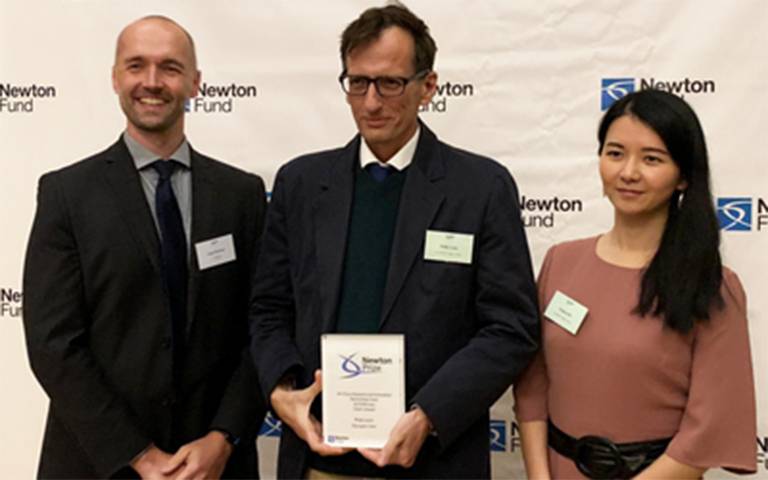Pioneering crop monitoring for food security
25 February 2020
Philip Lewis leads team to win Newton Prize

A new way to monitor crop production for global food security, developed by a UK-China team co-led by UCL Geography's Professor Philip Lewis, has won the £459,000 Newton Prize 2019 Chair's Award.
The prize, announced at a special event in London on 12 February, attended by Chris Skidmore MP, Universities and Science Minister at the time, recognises research with an exceptional impact based on knowledge exchange and partnership development.
Across the world, pressures such as population growth, soil erosion, drought, flooding, pesticide overuse, and groundwater depletion are threatening the sustainability of future food production, all exacerbated by climate change.
The UCL-Chinese Academy of Agricultural Sciences project addresses these challenges through advanced data assimilation techniques. They have already been used to improve the accuracy and resolution of crop monitoring and crop yield estimates over the North China Plain.
This has fed directly into agricultural production planning at government and regional level, and the team is working to provide information more widely to workers and farmers. It is hoped that better planning and informed decision-making at all levels will improve the livelihoods of low-income rural communities, and the methods are now being tested in other countries, including Ghana and the UK.
Philip Lewis explains, “Winning the Newton Prize Chair’s Award will allow us to extend the application of our techniques to Ghana, where we will use earth observation and data assimilation techniques to help build the country’s capacity for food-crop monitoring. We will focus on the monitoring of maize yield and acreage in the northern regions of Ghana, where food-crop farming is vital to low-income households and particularly women and children.”
The project is among the first to make use of new capabilities from high temporal frequency imaging from space, enabled by the EU/ESA Copernicus Sentinel satellites and supplemented by US and Chinese assets.
Project partners include the National Centre for Earth Observation, the Chinese Academy of Agricultural Sciences, the China Agricultural University, and others, including the UK SME Assimila.
The project was supported by the Science & Technology Facilities Council (STFC), part of UK Research and Innovation, and the National Natural Science Foundation of China.
 Close
Close

